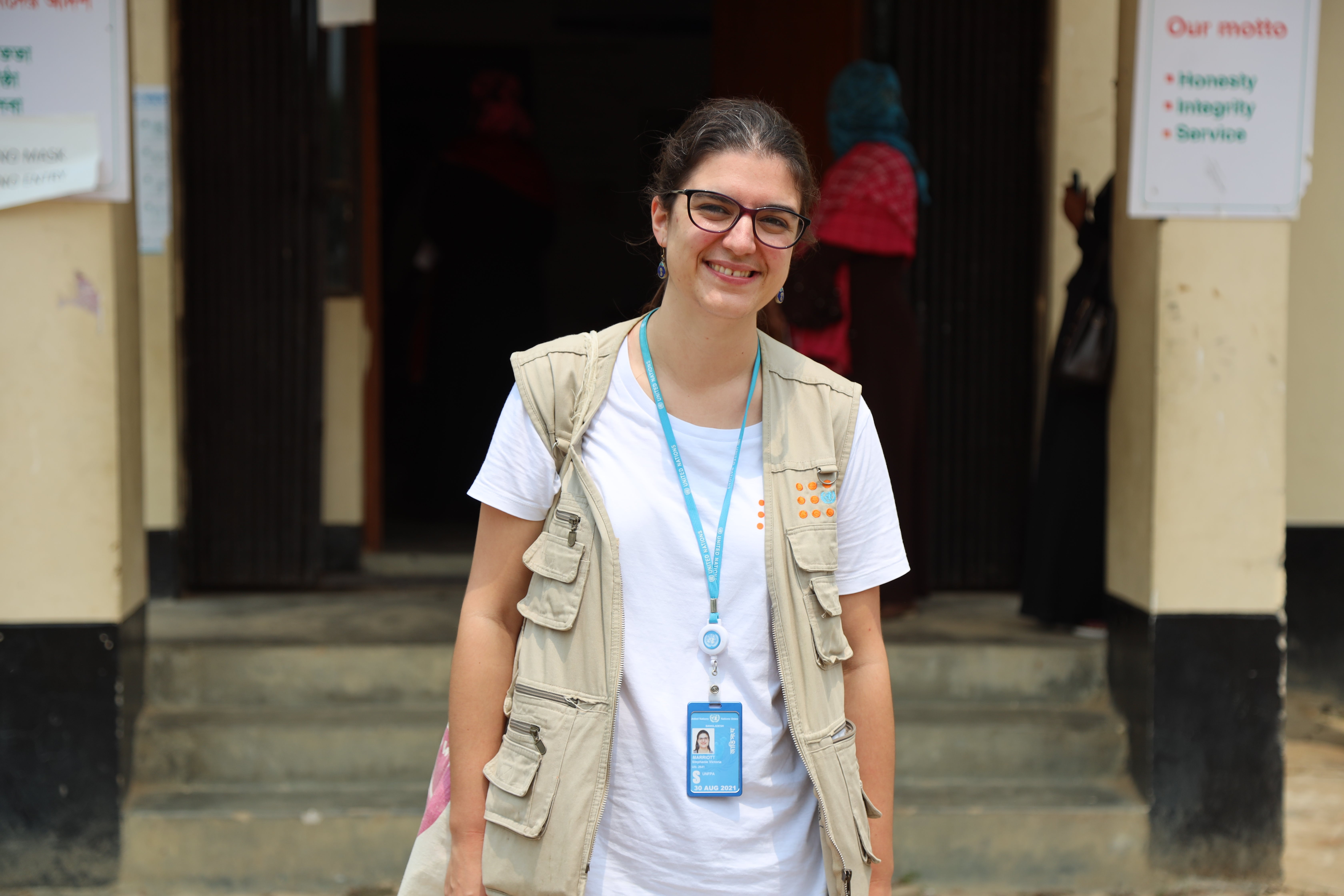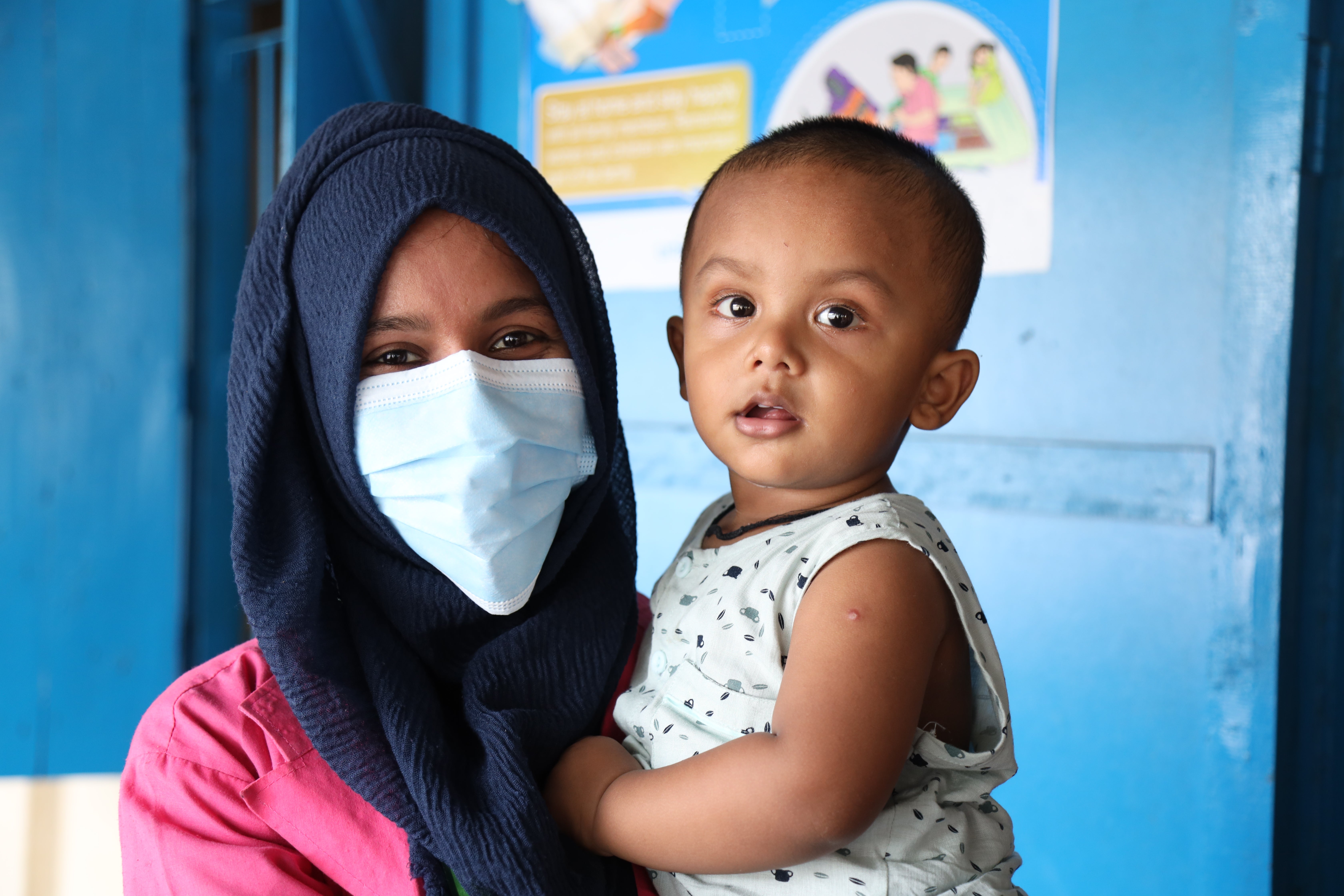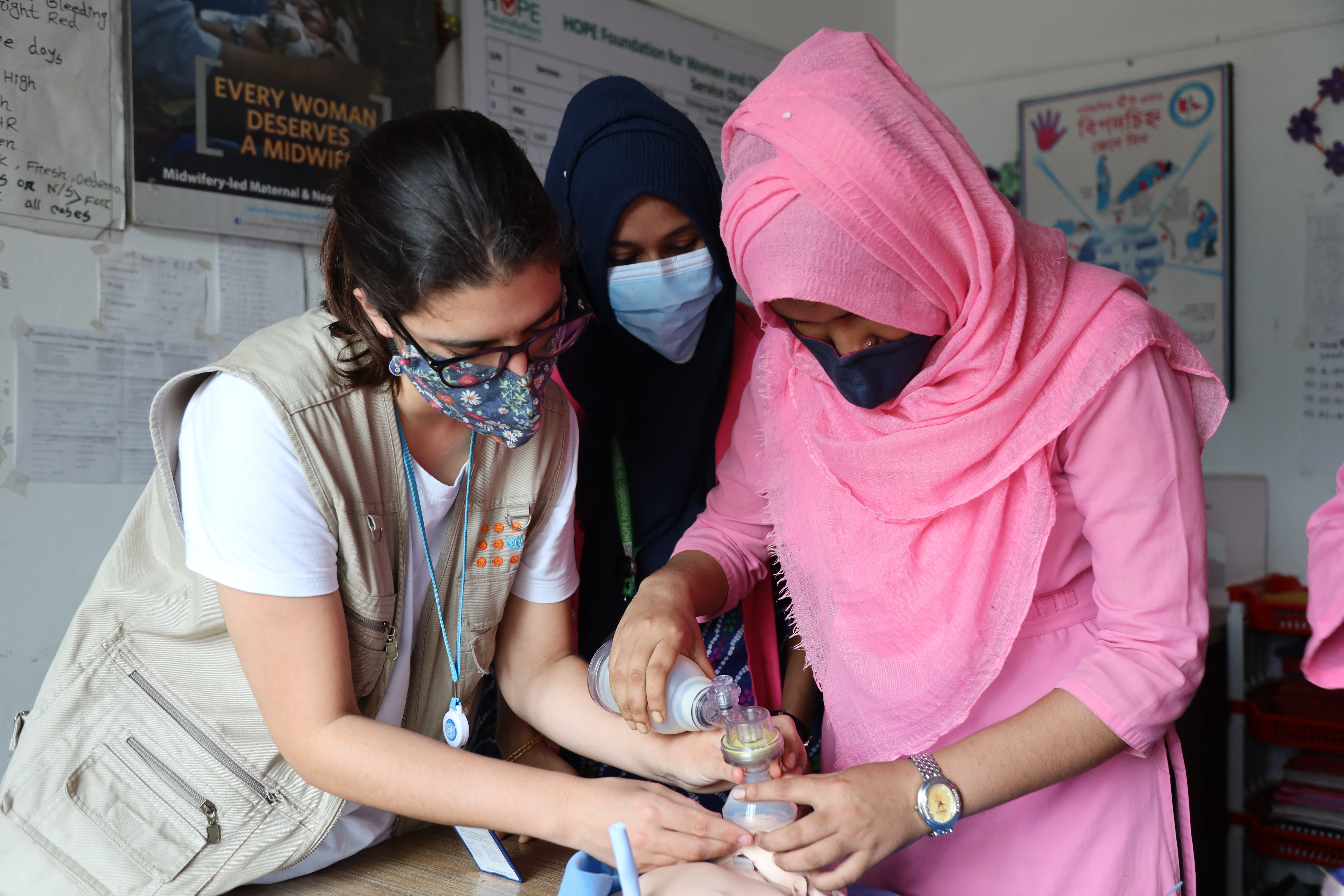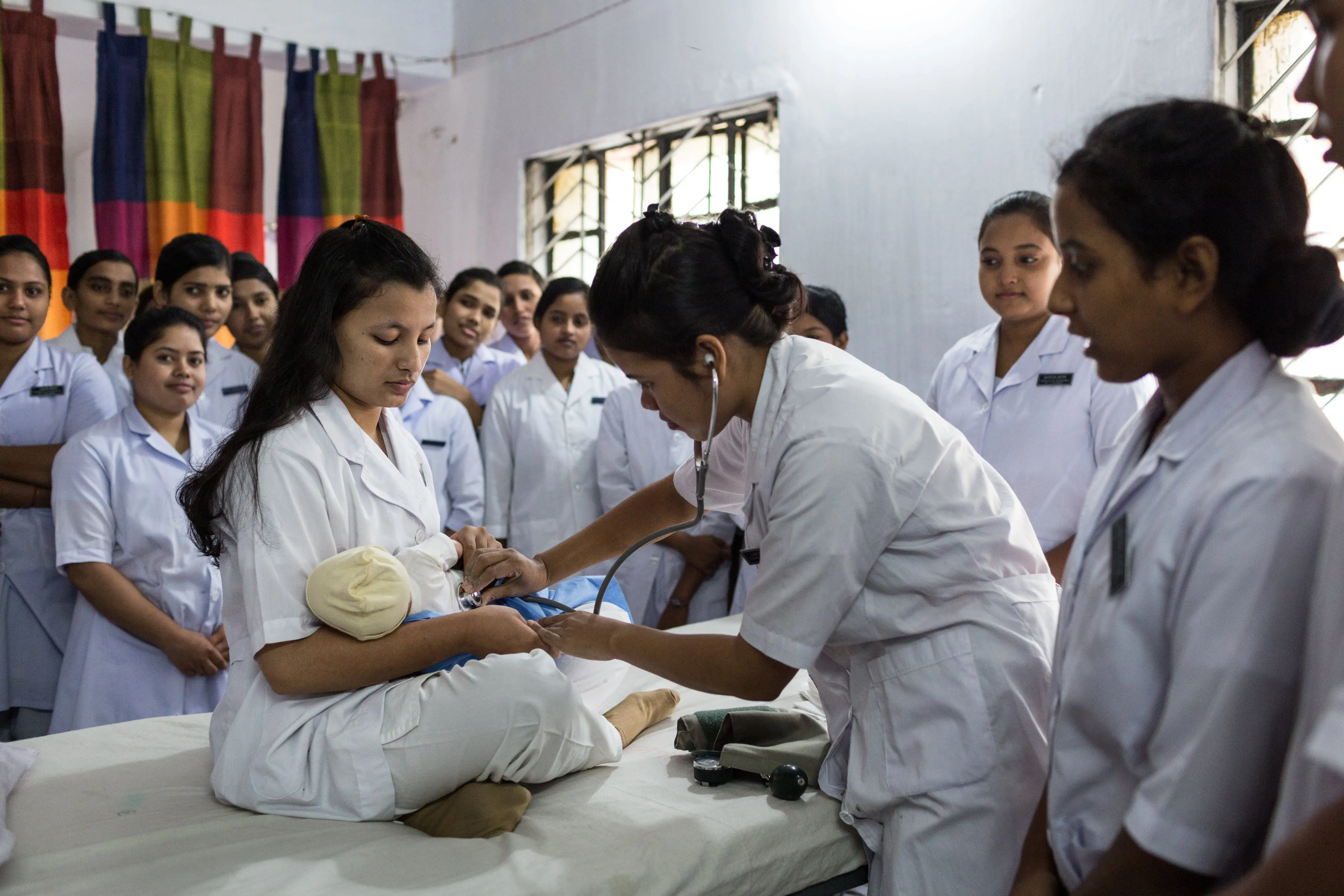“We are working hard to turn midwifery into a highly-valued profession in Bangladesh that provides employment opportunities for women around the country,” declares Stephanie Marriott, one of UNFPA’s two international midwife mentors in Cox’s Bazar.
In September 2020, Stephanie arrived in Cox’s Bazar from the United Kingdom to take on the huge responsibility of training and mentoring the 161 midwives that UNFPA supports in the Rohingya camps and surrounding host communities in Cox’s Bazar. By undertaking frequent mentoring and monitoring visits to UNFPA supported health facilities in the region, Stephanie ensures that all national midwives are confident with providing routine clinical midwifery services and other comprehensive sexual and reproductive health and rights services in the facilities they work in.

Despite being essential to reducing maternal and newborn deaths, midwifery remains a relatively new profession in Bangladesh. The first midwives in the country were trained to the standards of the International Confederation of Midwives in 2015 and deployed to government health facilities in 2018. Ever since then, UNFPA has played an instrumental role in promoting and bolstering the status of midwives as a crucial component of the country’s health system.
“We are here to assist women and ensure they have all the services and support that they need to have a positive experience when they give birth. I am so happy that women are getting to know the support we provide“ exclaims Urmila, a 25-year old midwife supervisor working under Stephanie in the host communities in Haldiapalong and Ratnapalong districts.

Because of COVID-19, Stephanie and Urmila have recently had to come up with some innovative teaching and learning methods to continue building the capacities of midwives in Cox’s Bazar during the pandemic. The UNFPA team of midwives has established an online chat group, where they share videos and photos through which they learn about midwifery skills and life-saving interventions.
“I feel the online group is effective, because everyone can ask questions, share photos and videos of what teaching has been undertaken and receive feedback quickly,“ says Stephanie. “Photos and videos also facilitate communication despite the language gaps. By sharing videos of role-plays, simulations, teaching sessions and evidence-based practices, the knowledge and skills of the midwives are developed, along with the confidence of midwifery supervisors as educators.”

In line with the theme of this year’s International Day of Midwives, “Follow the Data, Invest in Midwives”, UNFPA will continue to look for ways to ensure that midwifery services in Cox’s Bazar continue to expand despite the challenges posed by the COVID-19 pandemic.
UNFPA will also ensure that other essential sexual and reproductive health services, such as family planning, cervical cancer screening and clinical management of rape and gender-based violence remain available to women and girls from the Rohingya camps and host communities.
“Unless women can make informed-choices about their sexual and reproductive health and rights, we cannot reach our ultimate goal of gender equality and ensure the health of all women and girls that we serve” Stephanie concludes.




